By Les Tan, Dawn Yip and Jan Lin

Teo Ser Luck at a recent Asian Youth Games event. (Photo © Les Tan/Red Sports file photo)
Teo Ser Luck is the Senior Parliamentary Secretary for the Ministry of Community Development, Youth and Sports and the Ministry of Transport.
Before joining politics, he was in the private sector and his last position was as General Manager of DHL Express Singapore.
An Ironman triathlete, Ser Luck, who turns 41 on June 8th, has championed the role of sports, especially for the masses.
When the topic seizes him, Ser Luck also writes an occasional column for Red Sports.
Red Sports caught up with him for an exclusive interview.
Part 4
Red Sports: With the Youth Olympic Games coming up, the tendency is to focus on the elite. How do you hope that it will spill over to mass participation?
Teo Ser Luck: To me, it should be the reverse. Of course we have to focus on the elite, to put the team there, but we should use that to build the platform for high participation while continuing with the elite.
If I put the funding into building the base and not just for medals, I think it (mass participation) will happen. Not just me, but everybody else has got to buy into it and say, “Let's go into school and do youth development.”
Youth development means that you try everybody out, give everybody a chance to play. Youth development means that there are different portions, one is for the elite, for the average and for, I would say, the potential. So we've got different forms and each one, we've got to give equal funding, or can be slightly more here and there. Right now it’s 70 or 80% (of funding) for the elite and 20% or even less for the rest!
RS: That ratio doesn't include facilities right? Because I think we are quite generous in terms of facilities for the masses.
TSL: I would say that you would have to exclude sunk cost. To me facilities and hardware are sunk cost. If you put that aside and calculate, it (the funding ratio) really is skewed. We are talking about programs, about development.
RS: SSC had mooted the idea of setting up a league that encourages the schools to send in second stringers, third stringers. What do you think of that idea?
TSL: A fantastic idea. Just that they never brought it up to me! Probably got canned. You know, there are all these levels.
RS: Probably got stuck at MOE?
TSL: No, it won't be stuck if someone is willing to come out with the money, right? It's just which ministry, as far as I'm concerned. If it’s government, then it’s the same pocket. Then it’s whether you want to…
RS: So you're saying that this rebalancing of the funding is something that you intend to focus on?
TSL: Yes, to send a message out to the NSAs. I just think NSAs should make an effort to promote their sport, go to schools, work together. I think, for NSA, I'll put the funding through. Co-share, no problem. But let's get something started.
RS: One of the frustrations that kids express through the Red Sports chatbox is that foreign talents are taking their spots on the team. Our position on the site is really to say that, these guys are here to study and they are also trying to find their space in life. If they stay on in Singapore and become Singapore citizens, then good for us. But there is also that level of frustration that every time they look at the first team, ´Who is this guy'? A foreign talent.
TSL: It will happen. But I think they should spur themselves to work harder, smarter, to be able to compete. It doesn't matter if they are foreign talent. So instead of you joining international competitions and then you lose, and you don't have enough chances to join international competitions, you bring the foreign talent in and then you compete. They are here on local ground.
RS: On a related note, we’ve told SSC that if they do start this league – A division, B division, or Division 1 or 2 – we would be more than happy to support. At the end of the day, a school can field a few basketball teams and football teams because there the interest is all there. There are only that many people who can make it to the school team, but it doesn't mean other people don't want to play.
TSL: We should. We should have more leagues for the second and third tiers, give them the chance, and maybe it can be more fun and parents should be involved as well. If you look at the U.S., how successful they are with the weekend sports activities, parents are involved, they are officials, they are referees. This is exactly what the sporting culture committee is trying to do.
RS: We noticed that some schools, because they are so focused on elite sports, don't even have certain sports at all because they don't want to lose.
TSL: Exactly. Yes, that's the problem you see. There are always the rankings and all that. Then what happens to some sports? Last time, we used to have sepak takraw - I also played sepak takraw - fun, you know! I played sepak takraw in secondary school, and that's for fun. I played sepak takraw in primary, for fun also. So we just set a bench, and we get both sides.
We should do that, so that all of us will enjoy what sports is about and you can compete, then you get something to look forward to. That's why the Singapore Games is important to me, personally. The Singapore Games where you and me, we all can join, we can represent our club, we can represent ourselves, it doesn't matter. We just go out and have fun, but we compete.
Look out for Part 5
REDpoll
Related Stories
“YOG is not about medals, it’s about the education and culture.” An interview with Teo Ser Luck (Part 5)
"I think you join the girls," a primary school softball coach once told Teo Ser Luck (Part 1)
"JC life was quite interesting, that was where I met my wife." An interview with Teo Ser Luck (Part 2)
"I feel that for schools, the best is: Don't focus so much on winning." An interview with Teo Ser Luck (Part 3)

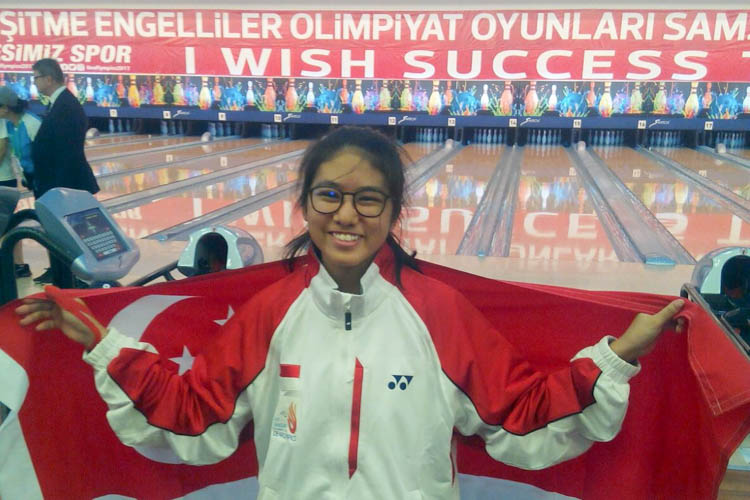
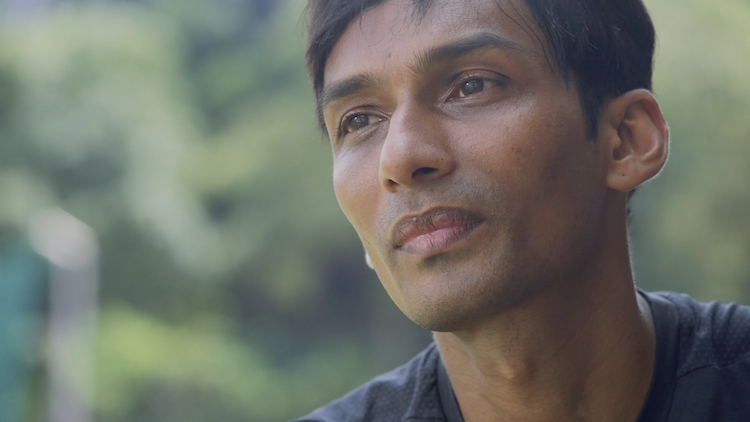
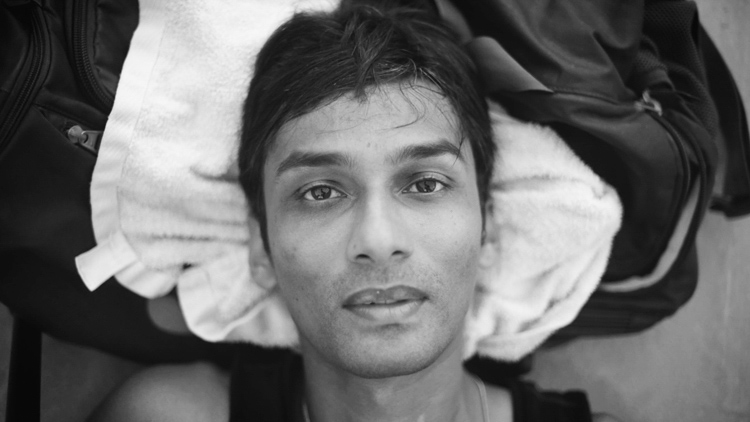
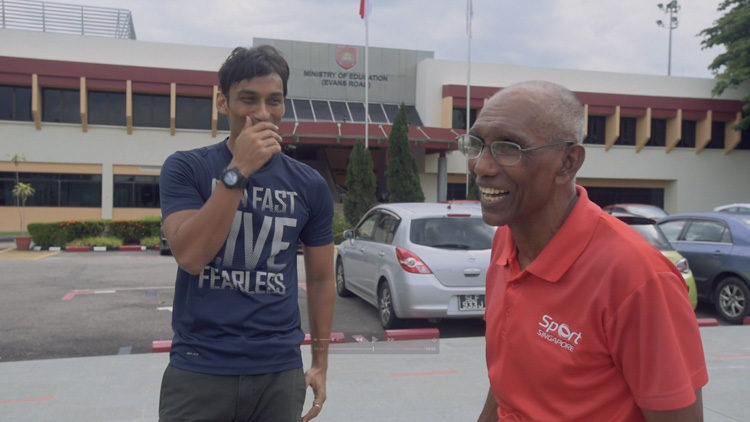
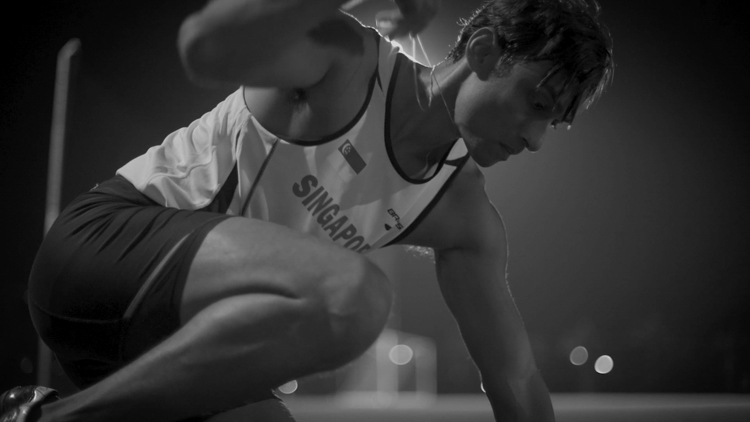
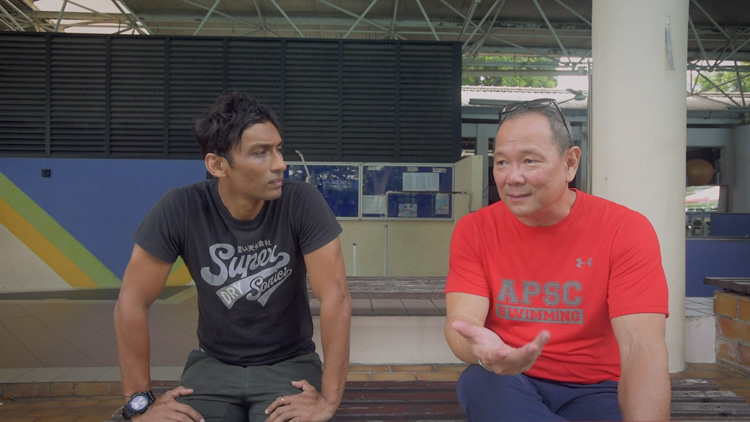
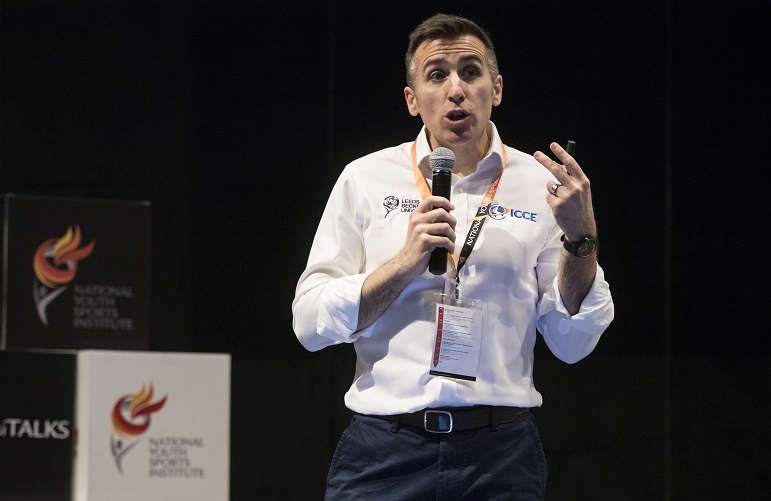
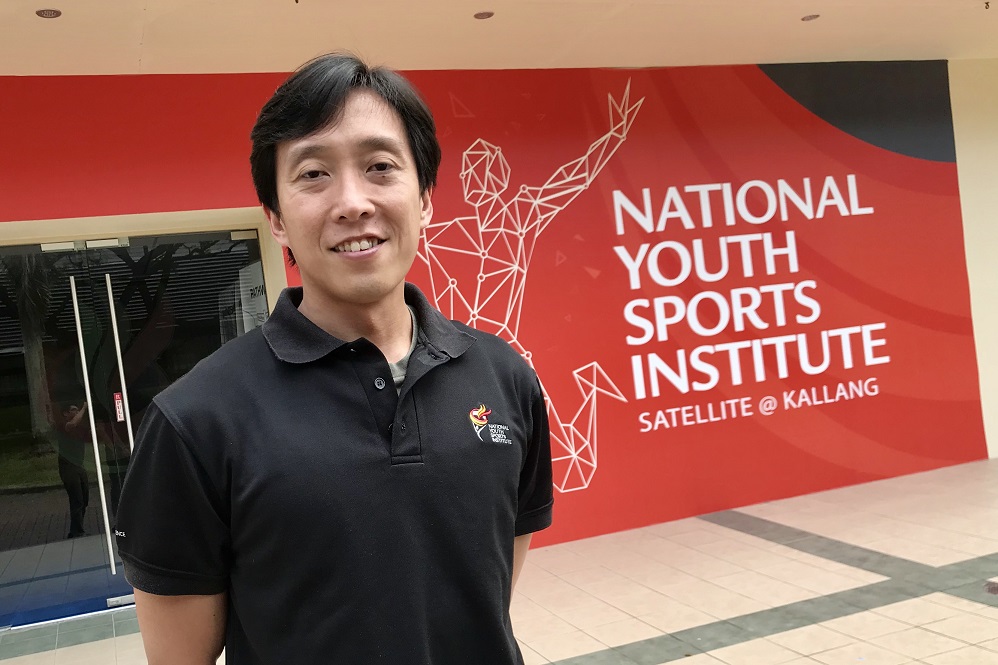
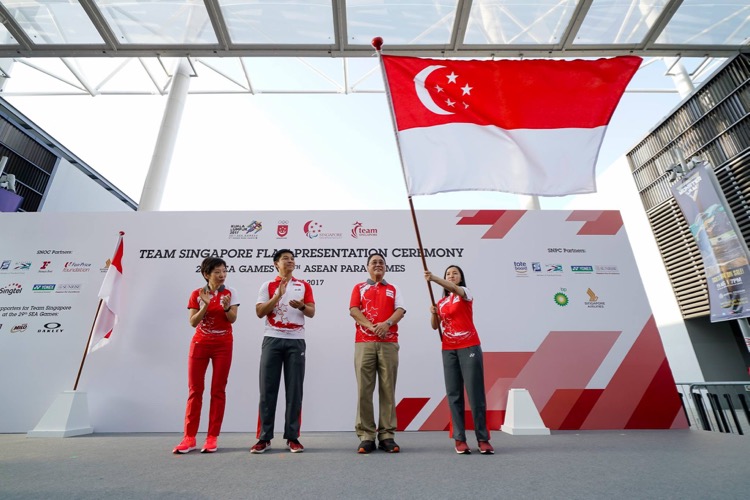
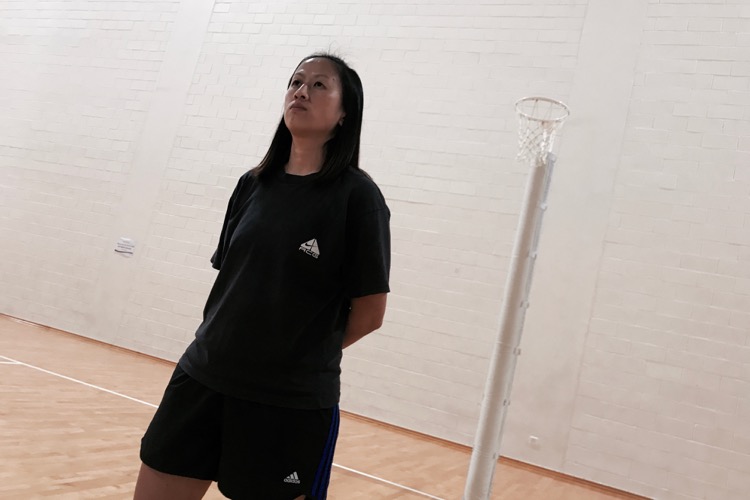
[…] Teo Ser Luck said then: “That’s why the Singapore Games is important to me, personally. The Singapore Games where you and me, we all can join, we can represent our club, we can represent ourselves, it doesn’t matter. We just go out and have fun, but we compete.” […]
As a parent, I embrace sports as education. sports also means competition. I would like my 3 children to learn about competing with the best and accepting the outcome. My eldest recently face stiff competition for a slot in the youth squad. But that spur him to work harder. However, he lost but make a commitment to try again. What heartened me was he became good friends with his closest competition. i can’t be more proud as a parent when he told me he has learnt more from this and became a better person ! It is this attitude that we should cultivate.
So do we bring in talent or we don’t ? Do we want to embrace foreign talent ? I am a coach and I can tell you my trainees love the competition from these talents that was not available to them previously. One of the reasons was that they are already national or regional champions. It is also not true that foreign athletes train full time. At least in my sport, they are in school(not sports school).
I understand what Mr. Teo and the Ministry are trying to do. While bringing in the talent, they keep a balance. To lift Singapore sports to the next level, this is inevitable. We are not a big country after all. Even some big countries in bringing them in.
Worst thing that can happen is that we become sore losers. That is what I always remind my boys and girls that all competition is good. If we want to breakthrough, yes, we must work harder, commit and sacrifice.
I totally agree with royston, Mr TSL obviously have not been on the grounds. THink about it, athletes in Singapore are mostly amateurs and full time students. The best of the best are already juggling very hard between school and studies. They are happy that they can be the top few in Asia with their efforts and succedding in both sports and studies. Imagine the next day u plonk a foreign talent over night. He starts training full time, a professional athlete. No matter how hard the local guy train, he cant beat him cus in order to do that, he gotta quit studies.
So Mr TSL, it doesnt work. As an athlete myself, I have worked with sports scientist at SSC. and their mindset is the same. they look at my test results and say u gotta train more. Hey dude, i have been trainnig as hard as i can to juggle my studies and sports, and ur only input is to train more. I say, go back expat! Bring in a sports scientist who is expert in handling student-athltes and teach singaporeans how to get optimum performance with quality training.
Seriously, singapore sports is WAAAYYY back. If you cant get ppl to stop studying, join them, and encourage them to excel with sports and studies. It is not impossible. Say, we got so my SEA Games athletes gold medallists who are students. Get in a good team of sports scientist to help them work on their training to maximise gains and they surely can get to the asian games level. ONce that is done, some may feel inspired and willingly quit school and pursue their olympics dreams and thats how u get a good singapore sports team. Not by pulling in FTs and forcing locals to make a decision at a young age to go professional or be behind the FT forever.
seriously man. this is crap. i am a singaporean and was from singapore sports school track and field acad. when they brought in foreign talents who were better and faster than me. “working and training hard to beat them were the last in my mind”, because in sports. training does little help but its the mindset that counts.
so stop telling us that you’re bringing in foreign talents so that you want us to work harder.
It is understandable for students to feel demoralised by the inclusion of foreign talents in the team. I believe though, this is where educators, coaches and parents can step in to encourage them to see it from a broader, mature and functional perspective as mentioned by Mr Teo. It must be recognised that there is a role to play for all stakeholders involved.
If coaches and schools are to bring in foreign talents in schools, then I feel they will have to be responsible in making an intentional effort to foster friendships and a common identity between the local and foreign athletes to reduce as much as possible the “us” against “them” feelings that will easily surface.
🙂
Dear sir, i appreciate that you hold participation above trophies. And that foreign talent helps to raise standards. But the case in the school scene is far from ideal.
Take the case of foreign talent in say, table tennis or badminton. All you need are 3 special foreign talents to win the singles ties and voila – you have the team title in the bag!
It’s getting ridiculous when schools now compete to get the best foreign talent to battle it out against each other. That includes schools with no established training programs for the sport and rely solely on the foreign talent. Just come up with the funds (from somewhere) and you have “bought” for yourself a championship title!
What will happen is this – our local talent will feel demoralised instead of being encouraged to train harder. And knowing schools, some may even think of scaling down their training programs for locals and jump on the foreign talent bandwagon! I mean – it’s so simple: why train so hard when all you have to do source for the right people? And it’s a surefire way of winning (provided your foreign talent is better than the rest!)
The lack of any regulation or leadership in this matter by the authorities will result in a step backwards for sports in Singapore. Instead, we should be doing a rethink of our inter-school sports and make some principled reforms. Don’t be surprised if a number of students do not feel any pride when Singapore gets its first olympic podium in 48 years!
But thank you for your attempt to engage the sporting world anyway!